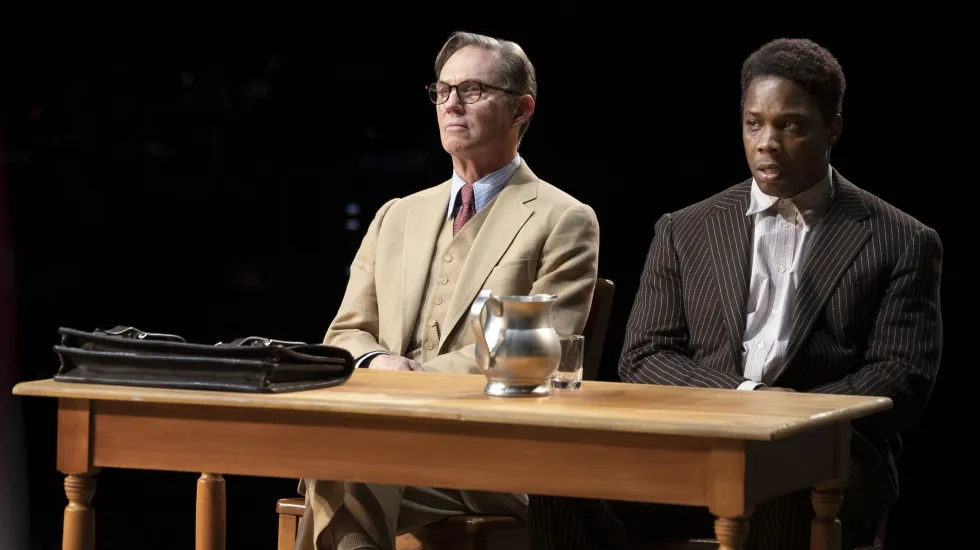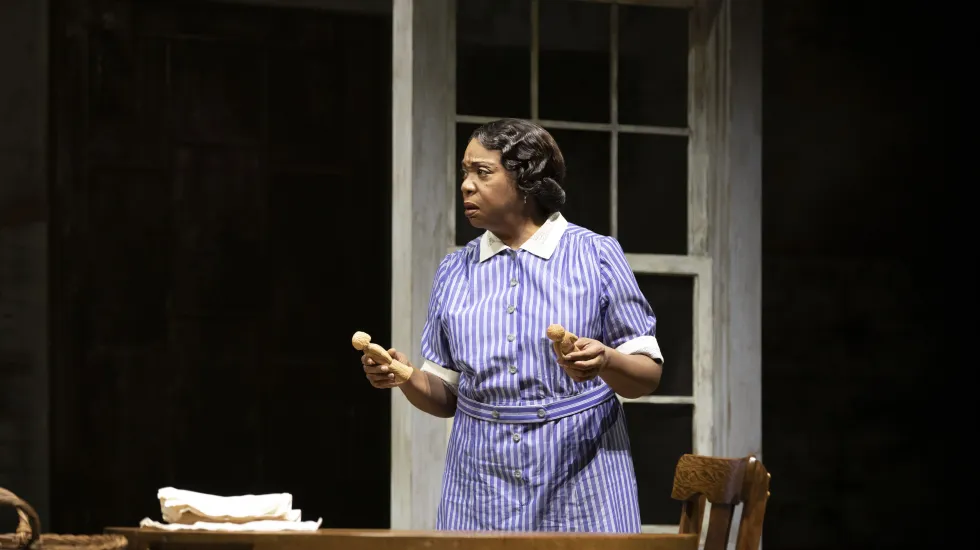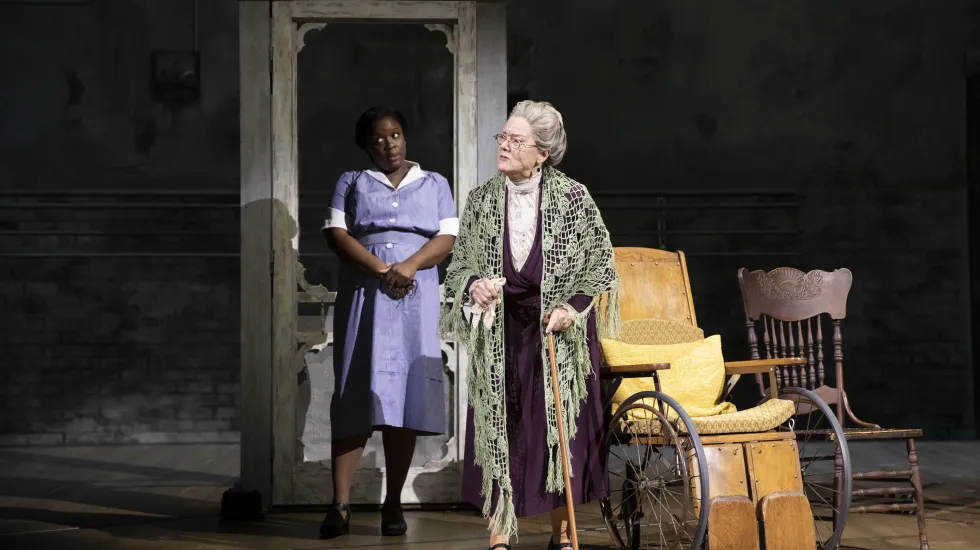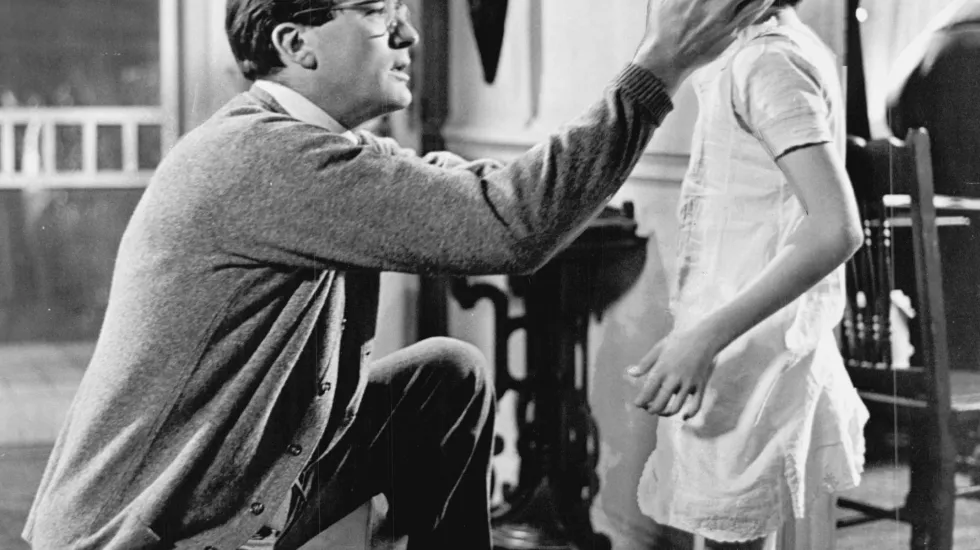
The national touring production of “To Kill a Mockingbird” arrives May 17 in Chicago at the Nederlander Theatre, and it’s needed now more than ever, according to the actors portraying the story’s iconic characters.
How is a play set in a sleepy Alabama town in the 1930s relevant to audiences in a city like Chicago today?
The story of a young girl and her father, a lawyer who defends a Black man falsely accused of raping a white woman and who is on trial for his life has been reworked by “The West Wing” creator Aaron Sorkin to humanize the characters, especially Atticus Finch, the attorney and father who Gregory Peck turned into an icon in the 1962 movie version. The film won three out of eight Academy Award nominations, including a best actor nod for Peck.
‘To Kill a Mockingbird’
When: May 17-29
Where: Nederlander Theatre, 24 W. Randolph St.
Tickets: $35+
Info: broadwayinchicago.com
Sorkin’s play, which he adapted in 2018 for Broadway from Harper Lee’s 1960 Pulitzer Prize-winning novel, also gives more depth to the play’s Black characters, notably Calpurnia, the Finches’ Black cook, and Tom Robinson, the Black fieldhand on trial.
Perhaps most important to the play’s relevance is the change in America since the 2020 murder of George Floyd, according to Jacqueline Williams, the Evanston native who plays Calpurnia, the cook who helps the widower Atticus raise his children, Scout and Jem.
“It’s relevant because we have all sorts of horror going on now in terms of injustices and brutalities, senseless arrests and murders, and now we have the threat of going back 50 years by overturning Roe v. Wade,” Williams said. “This story is still needed.”
Unlike musicals, plays generally do not tour; Chicago is the production’s fourth stop on a 40-city tour that will end in June 2023. The actors say this provides an opportunity to spread the story’s message across the country. And they feel a sense of mission to do so.
Richard Thomas, famous for playing John-boy on the television series “The Waltons,” plays Atticus Finch. Thomas, speaking from Cleveland where the show is playing before Chicago, said Sorkin made Atticus vulnerable, something he believes present-day audiences in any city can relate to.

“You can’t play an icon, you can only play a person, and Aaron made him so much of a person,” Thomas said. “His flaws and shortcomings are very clear. His aspirations are clear, as are his frustrations and sense of humor.”
Thomas said the play is as much about Atticus’ struggles with parenting as it is about racial justice.
“It’s about parenting just as much as anything else and how do you shepherd your children as the realities of the world descend upon them,” he said.
Williams said Sorkin’s decision to dive deeper into the play’s Black characters keeps it from being criticized as a racial story with a white savior.
“You really get a sense of [Calpurnia’s] relationship to Atticus and to Jem and Scout,” Williams said. “She is that Black anchor in the community that Atticus just has no way to being privy to because he’s coming from a white perspective, even though he is supportive. Some of the insight that Calpurnia throws out and even some of the things Tom throws out makes Atticus more human in his arc and his journey and less of a savior.”
Yaegel T. Welch, who plays Tom, agreed.
“In the book and movie, Atticus is a beacon of perfection,” Welch said. “In this story, Sorkin humanizes Atticus and fleshes him out. It’s not about him being perfect. He has to learn lessons in the play, too.”
Welch, who also played Robinson in the Broadway version of the play, said he’s noticed differences in audiences pre -and post-George Floyd.
“What’s interesting in doing the play before George Floyd was killed is that audiences were very much caught up in nostalgia,” Welch said. “There wasn’t a call and response. After George Floyd, we actually hear the oohs and ahs from the audience and the shock, particularly with Calpurnia and Tom, because they are saying things that people are thinking, and Sorkin has written those things.”

Welch said he prepared for his role by learning about the thousands of Black men who were lynched in America and dedicates a performance to a different victim every time the curtain rises.
“Tom Robinson was fiction, but this story was real, and it was real thousands upon thousands of times,” Welch said.
For audiences, he said, “We can only hope that they learn something, that they leave the theater more empathetic.”
Welch, Williams and Thomas said one treat of the touring version of “Mockingbird” is that Mary Badham, who played Scout in the 1962 movie, now plays a much different character in the story — Mrs. Henry Lafayette DuBose, the racist, morphine-addicted neighbor of the Finches. Badham said the story is more important than ever.
“It’s so timely,” Badham said. “It carries life lessons that we still haven’t learned yet. So our job won’t be complete until we don’t have to do this anymore.”

Badham said that bringing the play city to city helps the campaign to keep the novel in schools, which has come under attack over the years for its racial content.
“I’ve done a lot of speaking engagements at schools to urge them to maintain the story in their curriculum, and we’re fighting a hard battle now to keep it in the schools,” Badham said. “I don’t understand it. We’re feeling under siege at this point. But the play has helped to continue this.”
Thomas said that, despite mixed reviews by critics who took shots at Sorkin for reworking some of the novel’s material, the play remains true to the spirit of Harper Lee.
“This is the wonderful thing about classic work,” he said. “You can continue to interrogate it, modify it and bring it forward so that the things that are lasting in the source material are not lost, but other questions are addressed that reflect the changes we’ve gone through and that we are going through right now.”







